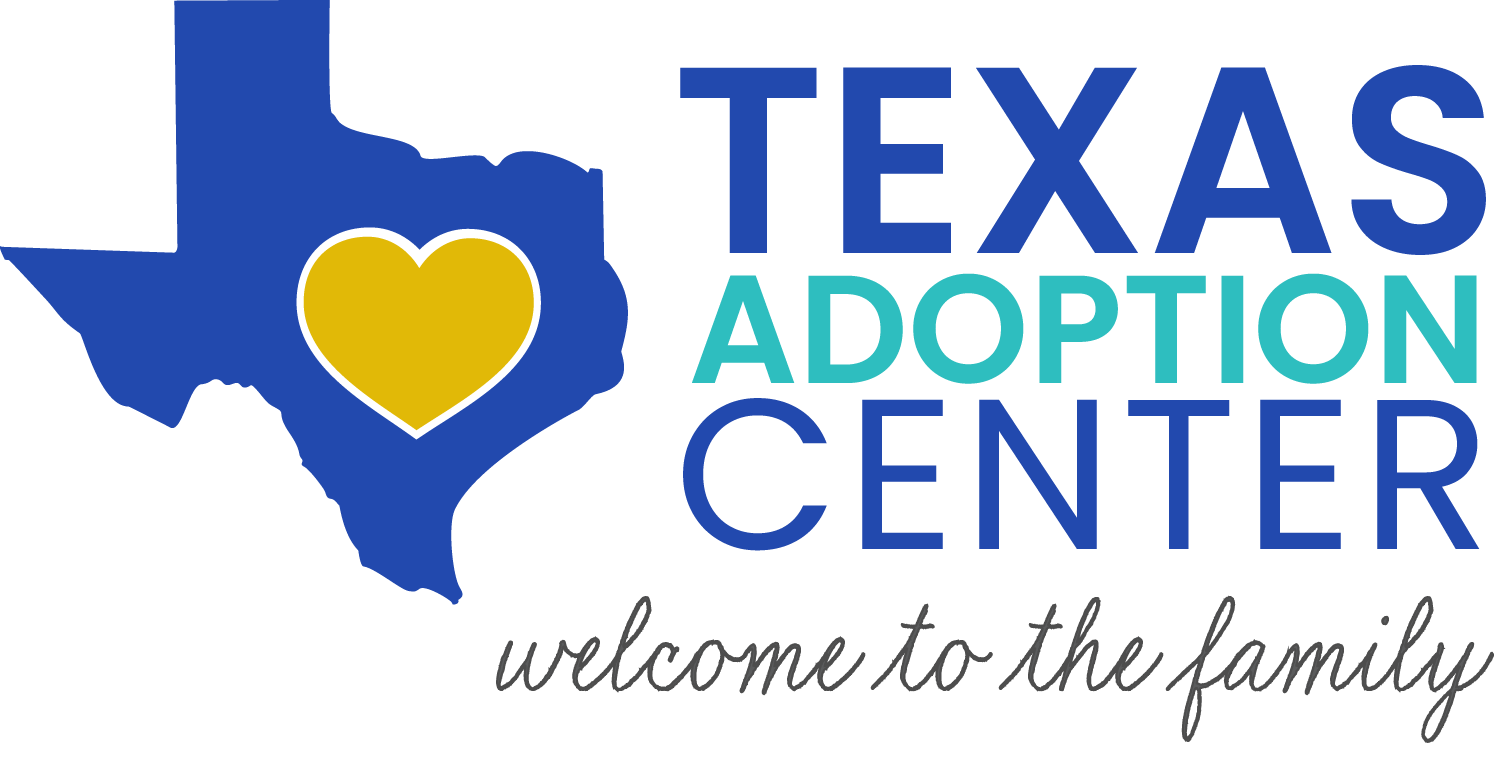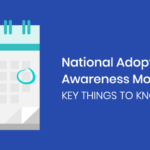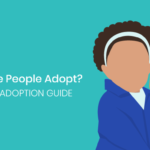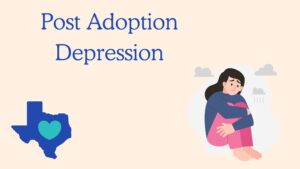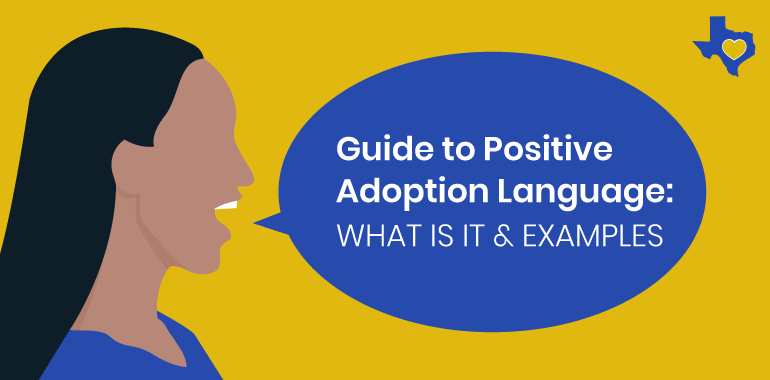
Have you ever stopped to think how your word choice would affect those around you? Words have the power to convey messages, evoke feelings, and impact the people receiving them. Words matter, and it’s crucial to be mindful of what we say to others. Everyone involved in the adoption process experiences a range of emotions throughout their journey. That’s why positive adoption language is important.
This article is a resource for individuals who are supporting anyone in the adoption journey. However, it can also help others correct the negative stigma that once surrounded the adoption process. We’ll cover the importance of positive adoption language and explore some examples of how you can adjust your word choice.
What Is Positive Adoption Language?
Did you know that your word choice can have a damaging effect on those connected to adoption? Your word choice can evoke negative emotions in specific contexts that leave those in the adoption triad feeling bad about themselves or their circumstances. Furthermore, negative adoption language can have a damaging effect on how others perceive the process of adoption.
Adoption is a common option today that has many benefits to all involved. Just as giving birth builds families, so does adoption. Although the topic of adoption was once controversial, today, we view adoption as a beautiful way to form a loving family. Positive adoption language helps further correct the controversial stigma of adoption and empowers all those involved in the process.
Why Is Positive Adoption Language Important?
When you use the right words, you encourage the world to view adoption as a favorable option for those who cannot or are not ready to parent. It’s an excellent way to honor and respect birth parents for their selfless, courageous choice. It also affirms the role of adoptive parents as their child’s forever family.
Most importantly, positive adoption language supports the emotional health of adoptees. It shifts the conversation away from the feelings of shame and self-consciousness that were once common. It inspires children who were adopted to embrace their stories with confidence and be proud of who they are.
Positive adoption language also stops the spread of misconceptions in the adoption world. It allows us to educate others about adoption and normalize positive terms. No matter how you are connected to adoption, familiarizing yourself with positive terms is the best way to offer your love and support to the adoption community.
Swapping Negative for Positive Adoption Terms
Choosing positive adoption terms over negative ones doesn’t simply debunk the myth that adoption is second best. It is also a great way to reflect the true nature of adoption and support those involved. Here are some examples:
| Negative Adoption Language | Positive Adoption Language |
| Real Parent Natural Parent Own Child Adopted Child Illegitimate Give Up Baby Take Away To Keep Reunion Adoptive Parent Foreign Adoption Adoption Triangle Disclosure Track Down Parents Unwanted Child Child Taken Away Handicapped Child Is Adopted | Birth Parent Biological Parent Birth Child My Child Born to Unmarried Parents Place Baby For Adoption Make an Adoption Plan To Parent Making Contact With Parent International Adoption Adoption Triad Permission to Sign a Release Search Child Placed for Adoption Court Termination Child with Special Needs Was Adopted |
Family Relationships
When discussing family relationships, it is important to understand the difference between an expectant parent and a birth parent. When a woman is pregnant and considering adoption as an option for her child, she should not be referred to as a birth mother. Instead, the term expectant mother should be used to respect her right to choose parenting versus creating an adoption plan. Once Relinquishment of Parental Rights has occurred, the terms birth or biological parent can be used to describe the man and woman who conceived and placed the child. We all have birth parents, and not all of us live in their custody.
Using terms such as real or natural parent implies that adoptive relationships are fake or unnatural. They also suggest that because adoptive families are not blood-related, their bonds are not as strong as those by birth. These terms can make a child feel that they need to qualify their position within their family. It could negatively impact their self-esteem, identity formation, and emotions.
Unless the situation requires you to use the term adopted child or adoptive parent, you should avoid these terms. Adoptive parents are real parents, and reaffirming this positively impacts the children’s confidence and emotional development.
The Adoption Process
Just as when describing family relationships, you should also be mindful of the terms you use to describe the adoption process. Stay away from negative language such as abandoned, surrendered, released, given up for adoption, and put up for adoption. These imply that the birth parent was careless in their decision. Instead, choose terms such as made an adoption plan or chose adoption. These terms acknowledge that the birth parents were responsible and thoughtful in their decision.
You should also avoid using the term “keeping” when referring to a child. This not only sends the message that the child is a possession, but it also says you think the birth parent has ignored their responsibilities. Using the term parenting instead of keeping can empower the option to choose.
Even well-meaning individuals can say the wrong thing at times. Here are some other common phrases to avoid:
- It’s so great that you adopted a child in need!
- Your son/daughter is so lucky you adopted them!
- Your son/daughter is much better off in your care!
- I could not raise someone else’s child!
While you might think you’re building up the adoptive parents, phrases like these imply that they are better, more fit than birth parents. It also sends the message that children who were adopted should feel indebted to their parents for adopting them.
Of course, changing the way you speak can be a challenge, but it’s one worth accepting. At first, you may find yourself realizing you used the wrong term after the words were already spoken. Some people even find themselves correcting their wording mid-sentence. Whatever it takes to make the change is an essential part of the process. The good news is that you can leave a positive mark on the adoption world and influence others along the way with a bit of work and effort.
Contact Texas Adoption Center for More Adoption Resources
Whether you are an expectant parent, birth parent, adoptive parent, or a friend to an adoptive family, using positive adoption language can genuinely make a difference. At Texas Adoption Center, we’re proud to offer loving support and valuable resources to benefit the adoption community.
Contact us online today or give us a call at (512) 893-7943 to answer your adoption questions.
